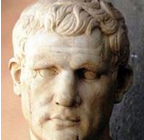This piece was reprinted by OpEd News with permission or license. It may not be reproduced in any form without permission or license from the source.
From Down With Tyranny
If neoliberalism is the belief that the proper role of government is to enrich the rich -- in Democratic circles they call it "wealth creation" to hide the recipients; Republicans are much more blatant -- then the "shock doctrine" is its action plan.
Click the link above for more information (or read the book), but in essence the idea is to use any form of disaster, whether earthquake or economic/political crisis, to remake a society in the neoliberal image. To reconstruct the destroyed world, in other words, to the liking of holders of great wealth -- by privatizing everything of value held by the public (think water rights, public roads); by forcing austerity on cash-strapped governments as the price for "aid" (think loans, not grants, repaid by unwritten social insurance checks); by putting "managers," or simply loan officers, in charge of democratic decision-making.
This is what happened in Chile after Pinochet and his coup murdered the democratically elected socialist Salvador Allende and took over the government. It's what's happening to Greece, victim of collusion between greedy international bankers and the corrupt Greek politicians they cultivated. And it's what happened in the U.S. during the 2008 bailout of bankers, by which government money was sent in buckets to companies like AIG so they could pay their debts in full to companies like Goldman Sachs. While millions of mortgaged homeowners crashed and burned to the ground.
The populist reaction to neoliberal "reform" is usually social revolt, often or usually ineffective, since creditors are, almost by definition, people with money, and people with money, almost by definition, control most governments. In Greece, the revolt sparked the election of an (ineffective) "socialist" government -- plus the rise of the Greek neo-Nazi party, Golden Dawn. In the U.S. the revolt still sparks universal (and ineffective) hatred of the 2008 bank bailout -- plus the rise of the failed Sanders candidacy and the successful Trump presidency.
The form this same revolt will take in 2018 and 2020 is still to be determined.
The Shock Doctrine and Puerto Rico
The "shock doctrine" -- the stripping of wealth from the devastated by the already-way-too-wealthy -- is now being applied to Puerto Rico. Even before the hurricanes hit it, Puerto Rico was a second-class citizen relative to states of the U.S., even among its non-state territories. In contrast to Puerto Rico, for example, the American Virgin Islands were instantly much better treated when it came to relief from the Jones Act, a sign of already-established prejudice.
The reason should be obvious. In Puerto Rico, English is the primary language of less than 10% of the people, while Spanish is the dominant language of the school system and daily life. In the American Virgin Islands, English is the dominant language, and Spanish is spoken by less than 20% of the population. The fact that two-thirds of the population of the U.S. Virgin Islands is black seems to be lost on most Americans, a fact that likely benefits those inhabitants greatly in times like these.
Thus, to most Americans the citizens of Puerto Rico are conveniently (for neoliberals) easy to paint as "them," the undeserving, which changes what atrocities can be committed in the name of "aid" -- much like it did after Hurricane Katrina devastated "them"-inhabited New Orleans.
In Puerto Rico's case, they entered the recent hurricane season burdened with load of debt, much (or most) of it bought on the secondary market and held by the hedge funds and the vulture banks you might expect to hold it. I haven't been able to find specific documentation on this, but I strongly suspect that much (or most) of this debt was purchased for pennies on the dollar by "investors" hoping to make the U.S. government make sure Puerto Rico never defaults on it, thus guaranteeing profit to the tune of many multiples of the original purchase price, profit of many hundreds of percent.
That plan -- forcing the U.S. government to force Puerto Rico to make every "investor" whole -- was already in effect under the Obama administration, and it's in effect today. Classic bipartisan neoliberals in action.
Then came hurricane season, with the kind of apocalyptic, lingering devastation you've most likely already heard about. Before the storms hit the island, Puerto Rico needed debt relief. Now they need humanitarian relief as well. They need not only to rebuild their economy, they need to rebuild the entire island itself.
Debt "Relief" or Debt Forgiveness?
What's killing the modern world, as I've noted for years and years, is the world-wide overhang of personal debt -- not government deficits, which are entirely different, but the mortgage, credit card, payday and student debt that makes it impossible for too many households to return to their pre-2008 "normal," as constrained as even that likely was.
(Note: You can view every article as one long page if you sign up as an Advocate Member, or higher).





